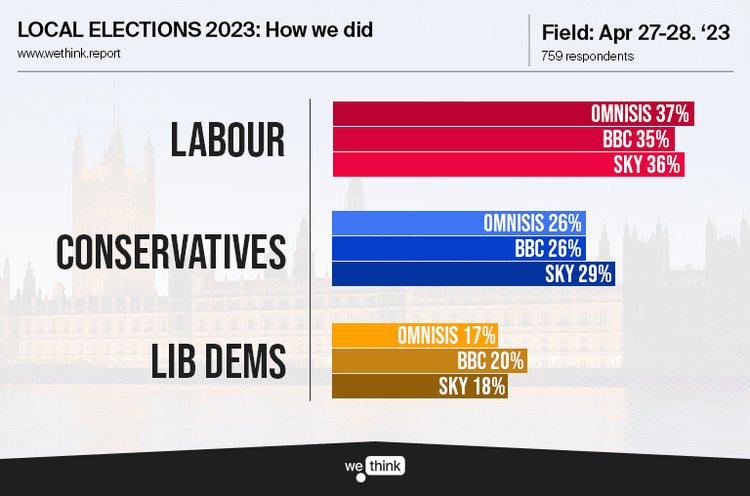Why Art and Culture still matter to the British Public

‘24
By: Atyeo Thomas du Toit
After the disruption of Covid in 2020/21, discussions around the importance of Arts and Culture to the UK have become electrified. During the pandemic, 55% of workers in the industry were furloughed, compared to 16% overall, whilst output declined by 60%, according to a University of Sheffield report.
With the long shadow of the economic, social, and behavioural changes of Covid looming large, we sought to find out how Britons truly feel about Arts and Culture. Keep reading to discover which types are the most important, what behaviours contribute to hardship for the sector, how funding should be reformed, and how Artificial Intelligence could affect the industry.
Art and Culture is important to Brits
Let’s start with the big picture. We asked whether art and culture was important for a healthy society, and for the UK economy. In the results below, we see a significant majority for both their importance for a healthy society (62%) and to the economy (57%), though there are more undecided and not important answers in relation to the economy.
The results are very similar across party divides – no party’s voters stray significantly from the national results, indicating limited political polarisation over the art and culture industry.
The crucial data comes from our questioning on which cultural institutions Brits think are the most important to have access to in their local communities. The results show public parks, libraries, public gardens, and youth clubs as the top four most important spaces.
In these, there are two spaces relating to nature, whilst libraries and youth clubs are spaces of education and activities. Crucially, when looking at the final four spaces, you’ll notice that they all relate to more traditional fine art – with art galleries being the second least important cultural space to have in their local communities.
This contextualises our first question about how important the Arts and Culture is to the UK’s society and economy. There are likely many respondents who answered that they were important on a whole, but were only thinking about a few spaces / institutions.
Keeping in mind the perceived importance of Youth Clubs and Libraries for local communities, the results below about which cultural institutions had closed or reduced their services in their local area are fascinating.
The fact that youth clubs, libraries, and cinemas are so far above other institutions is interesting in itself, but the impact that has on which institutions are the most important may be a factor in the earlier results.
Whilst the results are likely not completely representative of actual levels of closure and reduction of services in these areas, the perceptions are intriguing. The 36% and 31% of Brits that have noticed youth clubs and libraries closing or reducing services respectively are likely those that think they are important to the local community. The larger the institution’s presence in a person’s life, the more likely they are to notice reduced opening times, closures, or reductions in services offered.
Youth Clubs are the largest institution noticed to be closing / reducing services, and this has been echoed in political discourse. Rishi Sunak’s government announced a round of 140 new or renovated youth clubs from a £90m Youth Investment Fund in February of this year, since when the Financial Times has reported that two-thirds, or 1,243, of council-funded youth centres have closed in England since 2010.
This may play a role in the increased awareness of their closures in local areas, as they have received greater national coverage recently, increasing the salience of the issue.
Money, Funding, and the future of the Arts
Attracting crowds back to cultural institutions has been a major challenge for the industry post-covid. The behavioural change during the pandemic has had effects on funding models and services of these institutions, and Artificial Intelligence (AI) will add to this.
We asked if the rising Cost of Living had, or had not, affected people’s ability to engage with arts and culture, and found that 58% of Brits had been affected in some way.
This comes after we gleaned that the biggest consideration Britons make when they choose to spend money on art and culture events, like festivals and gigs, is comparing the ticket prices to ordinary spending levels.
In a time where prices have risen faster than wages, it’s not surprising that people have had to cut back on non-essential activities and spending - which is how many would view art and culture.
This combines with the behavioural effects of Covid, mentioned earlier. Cinemas have seen declining viewership as streaming services became more popular and convenient. Our polling found that when wanting to watch a movie, only 1 in 5 (20%) of people in the UK would go to a Cinema, compared to 67% who would stay at home.
We then asked the motives behind staying at home for those that do, finding a whopping 70% do so because it’s cheaper than going to the cinema. At the end of the list was bad cinema quality at 7%. This indicates that whilst the services offered by cinemas haven't gotten worse, the money British people are willing and able to spend on the experience has fallen.
Turning our attention to funding, we asked how funding should be balanced between the arts and humanities and STEM (Science, Technology, Engineering, and Maths) subjects. Our results shows a majority for ‘similar funding for both’, but of those that chose more funding for one than the other, Brits were three times as likely to support greater funding for STEM than greater funding for Arts and Humanities.
This comes after political discussions about reductions in spending on Art funding and ‘mickey mouse degrees’ by the last government, who announced a 50% cut in funding for arts and design subjects in 2021 in favour of ‘higher-return’ STEM subjects. The conservative administration from 2010 had also made a big effort to encourage STEM students to continue their studies in order to have the skills needed for the future, where they argued that tech jobs will become more important and numerous than ever.
Finally, we turned to the future of the arts and culture industries - especially the role that AI will play. We found that 57% of Brits thought AI would harm the creative industries in some way:
The main message to take from this data, though, is that Brits are unsure about AI’s impact. They will likely remain unsure until real regulation is brought in, as the new government have said they would, to clarify the legal requirements AI companies must accept. Until then, it’s feasible to imagine many possibilities with AI both helping and harming the creative industries, one of which would be the continuation of the current policy of allowing AI companies to train their software on copyrighted content on the internet without any compensation to the original creators.
We asked what people in the UK thought about this, and they came back resoundingly unhappy with the status quo. 58% of people said it should not be allowed, whilst only 21% said it should be.
Some sort of AI regulation will likely be popular, then, but it seems slightly optimistic to imagine the UK government being able to implement a measure for compensation of original creators for AI’s that are trained across global information systems.
Conclusions
The path forward is difficult and not entirely clear for the art and culture industry, though the shock of the pandemic is growing less and less important as time goes on. Even with the government’s biggest priority of housebuilding, 68% of Brits want artists to be involved in large development projects in some capacity, indicating that arts and culture cannot always be separated as a separate industry.
AI regulation would seem to be popular, whilst increasing funding for Arts and Humanities, and institutions like parks, libraries, and youth clubs would make a lot of Brits happy. Obviously this comes with a cost though, and as seen earlier, only 22% of Britons would be willing to increase tax or redirect money from elsewhere to fund more of these projects and institutions.
But then, perhaps this is what Starmer has been saying all along - securing growth will reduce these tradeoffs.
‘24
By: Atyeo Thomas du Toit
Sign up for our newsletter
Stay up-to-date with the latest poll results and insights.


